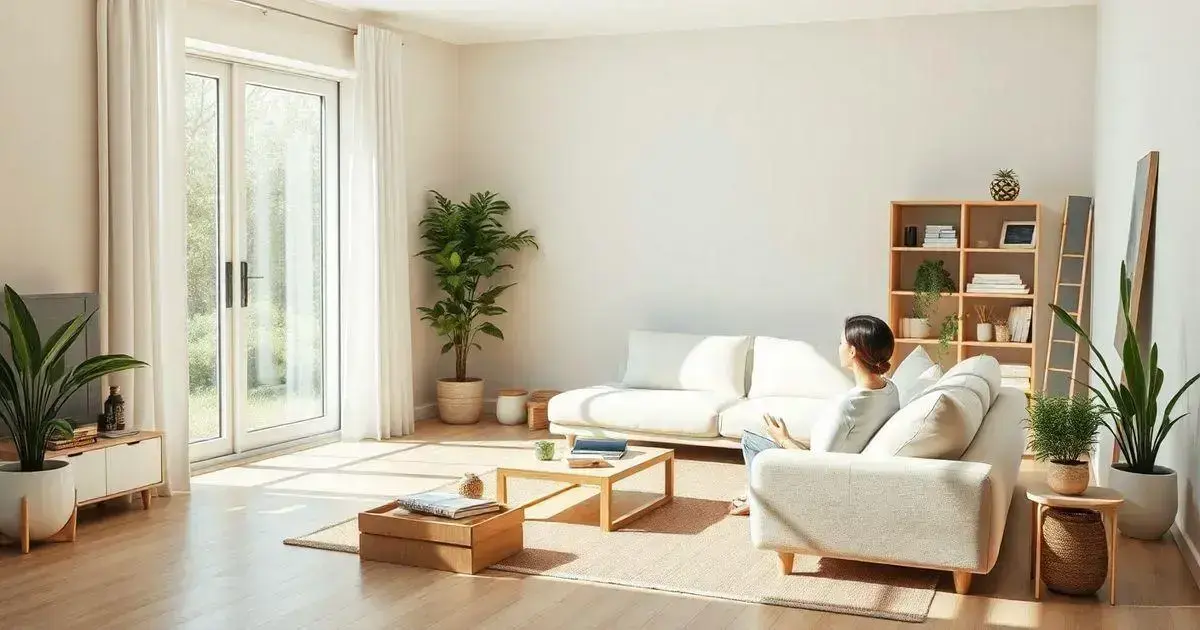Índice
The Minimalist Lifestyle is about simplifying your surroundings and focusing on what truly adds value to your life. By eliminating clutter, you create more space, both physically and mentally, for things that matter most.
Adopting this lifestyle helps reduce distractions, allowing you to prioritize experiences, relationships, and personal growth. It encourages a more mindful approach to daily living, with fewer material possessions and more meaningful moments.
Embracing minimalism doesn’t mean depriving yourself; instead, it’s about finding joy in simplicity and creating a life that’s intentional and fulfilling. Keep reading to explore how minimalist living can transform your life.
What is Minimalist Lifestyle?
The Minimalist Lifestyle is about simplifying your life by prioritising what truly matters. It encourages individuals to declutter not just their physical spaces, but also their mental and emotional environments.
Embracing minimalism means reducing excess belongings and distractions, leading to greater focus and clarity.
By consciously choosing to surround yourself with only essential items, you create a serene living space that promotes peace and mindfulness. This lifestyle shift can significantly improve your well-being, allowing for deeper connections with those around you and a more fulfilling life.
Minimalism is not a one-size-fits-all approach; it is a personal journey. Some may find joy in a few carefully selected possessions, while others may prefer a more practical approach. Ultimately, the goal is to find harmony and balance in your life.
Benefits of Embracing Minimalism
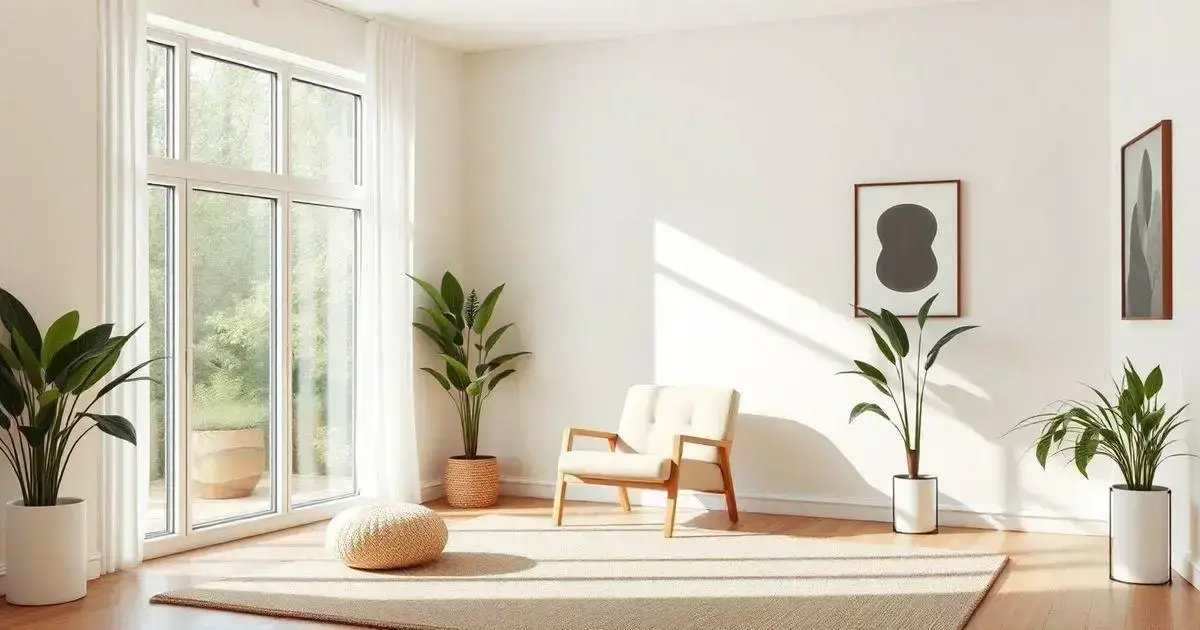
Adopting a minimalist lifestyle can significantly enhance your quality of life in many ways. By focusing on simplicity, you create space for what truly matters.
One key benefit is the reduction of stress and anxiety. Cluttered environments often lead to overwhelm, but simplifying your surroundings fosters a calm, focused atmosphere that promotes relaxation and mental clarity.
Minimalism also brings financial savings. By purchasing only what you truly need, you can cut down on unnecessary expenses, develop a healthier relationship with money, and allocate resources to meaningful experiences instead of material items.
Additionally, minimalism supports sustainability. Choosing quality over quantity reduces overconsumption and waste, while investing in durable, eco-friendly products benefits both you and the planet.
Finally, minimalism enhances your freedom. With fewer possessions, you gain the flexibility to travel, explore, and embrace new opportunities without being weighed down. This shift in focus from material goods to experiences and relationships can lead to a deeply fulfilling and balanced life.
How to Start a Minimalist Lifestyle
Starting a Minimalist Lifestyle can be easier than you think. The first step is to evaluate your belongings. Go through each item you own and ask yourself if it adds value to your life. If it doesn’t, consider donating or selling it. This process helps to clear out excess clutter.
Next, focus on your daily habits. Try to simplify your routines by eliminating unnecessary tasks. Create a schedule that prioritises the most important activities in your life, allowing more time for what you truly love.
Another way to begin is by adopting a one in, one out rule. For every new item you bring into your home, let go of another. This helps maintain a balance and prevents accumulation of unnecessary possessions.
Additionally, consider your digital space. Unsubscribe from newsletters and delete apps you no longer use. Keeping your phone and computer organised contributes to a clearer mind.
Lastly, practice mindfulness. Focus on enjoying experiences rather than accumulating things. By shifting your mindset, you can fully embrace the minimalist lifestyle and live a more intentional life.
Minimalism in Home Decor
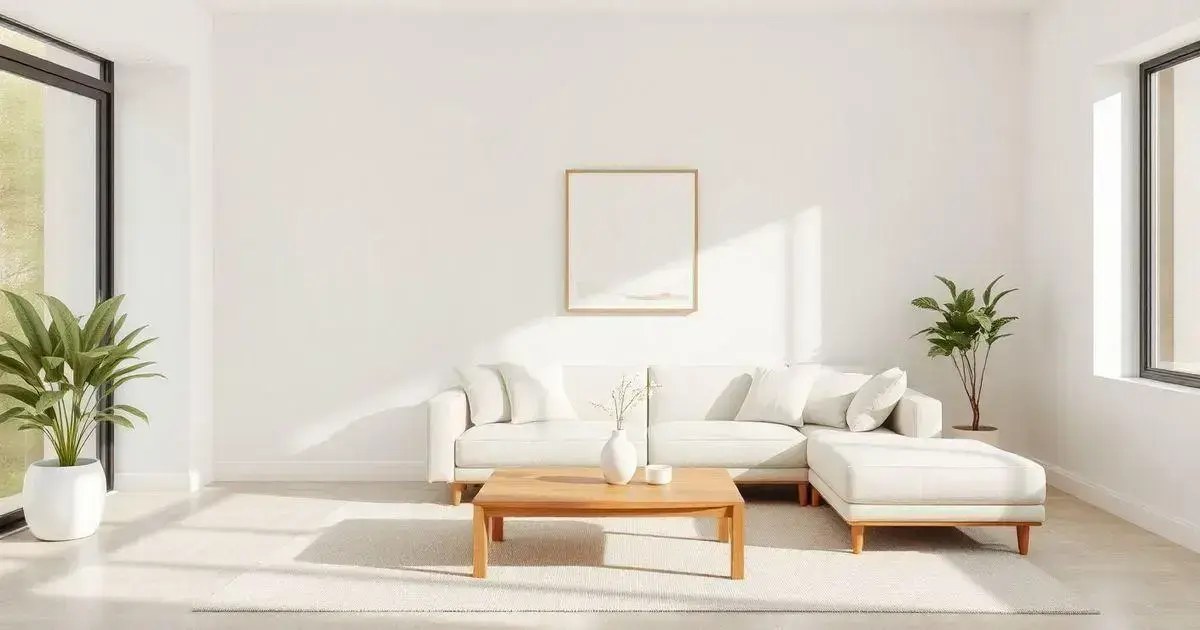
Minimalism in Home Decor focuses on creating a serene and clutter-free living space. The key is to choose quality over quantity while selecting your decor items. Start by identifying the essential pieces that define your style. Consider using a neutral colour palette to create a calm atmosphere.
Furniture should be functional and minimalist, like a simple sofa or a sturdy table. Use multi-purpose furniture to save space and reduce clutter. Instead of having many decorative items, select a few meaningful pieces that tell a story or evoke memories.
Natural light is important in minimalist decor. Keep windows clear of heavy curtains to let sunlight in. This not only brightens your space but also makes it feel more open. Incorporating indoor plants can add a touch of nature while promoting a peaceful environment.
Additionally, make use of negative space. Allow areas of emptiness to breathe, which creates a sense of luxury and calmness. Storage solutions like baskets or hidden compartments can help keep your belongings organized without disrupting the minimalist aesthetic.
Overall, the aim is to cultivate a space that reflects your values while being functional and beautiful.
Minimalist Shopping Tips
When adopting a Minimalist Lifestyle, shopping intentionally is key. Start by creating a clear list of essential items that you truly need. This prevents impulse buying and helps you focus on making thoughtful purchases.
Before entering a store or browsing online, research products thoroughly. Read reviews to ensure quality and consider if the item is a good fit for your lifestyle. Opt for items that are versatile and can serve multiple purposes.
Another important tip is to set a budget for your shopping. This helps you avoid overspending and ensures that your choices align with your financial goals. Stick to your list and budget to maintain control over your purchases.
Additionally, think about the sustainability of your options. Choose eco-friendly products that not only benefit you but also the environment. This aligns well with the principles of minimalism.
Lastly, remember that less is more. Focus on accumulating experiences rather than material possessions. Prioritise spending time with loved ones or engaging in activities you enjoy, which adds value to your life without cluttering your space.
The Importance of Digital Minimalism
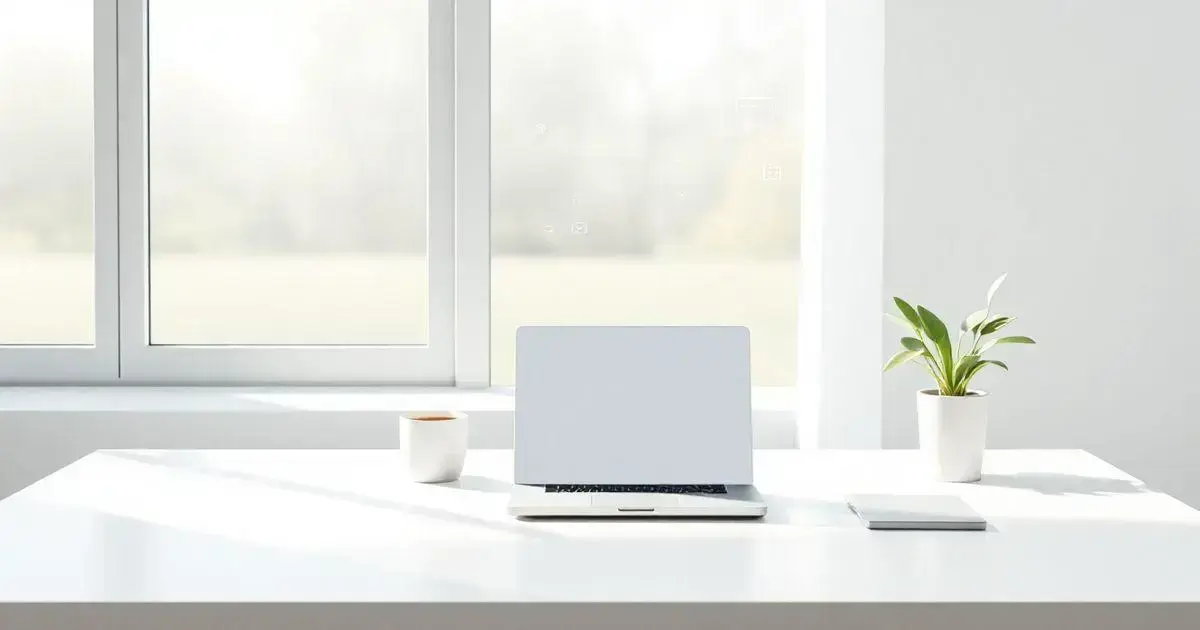
The Importance of Digital Minimalism cannot be underestimated in today’s fast-paced world. With constant notifications and endless distractions, it’s easy to feel overwhelmed. Digital minimalism encourages you to focus on what truly matters in your online life.
Start by reducing the number of apps on your phone. Keep only those that serve a purpose, such as messaging or productivity apps. This simplification helps limit distractions and enhances your focus.
Additionally, consider the content you consume. Follow only those accounts that inspire you or add value to your life. Unfollow or mute anything that brings negativity or unnecessary clutter to your feeds.
Implementing digital detoxes can also be beneficial. Set aside regular periods where you disconnect from all digital devices. Use this time to engage in offline activities that you enjoy, such as reading, exercising, or spending time with loved ones. This balance promotes well-being and helps rejuvenate your mind.
Minimalist Mindset for Stress Reduction
A minimalist mindset can significantly contribute to stress reduction. This approach encourages you to focus on what is essential and to let go of the unnecessary. With fewer possessions and distractions, you can create a calm and peaceful environment.
To adopt a minimalist mindset, start by identifying sources of stress in your life. Organise your physical space by removing clutter, which can visually overwhelm you. This creates an environment that is easier to navigate and promotes tranquility.
Additionally, consider your mental space. Practice mindfulness by concentrating on the present moment. This helps you gain clarity and reduce anxiety about future events.
Focus on quality instead of quantity in your relationships. Invest time in meaningful connections with others, rather than spreading yourself too thin. Surrounding yourself with positive influences contributes to emotional well-being.
Lastly, embrace simplicity in your daily routine. Streamline tasks and prioritize activities that bring you joy. By implementing these techniques, a minimalist mindset can lead to a more balanced and stress-free life.
Challenges of a Minimalist Lifestyle
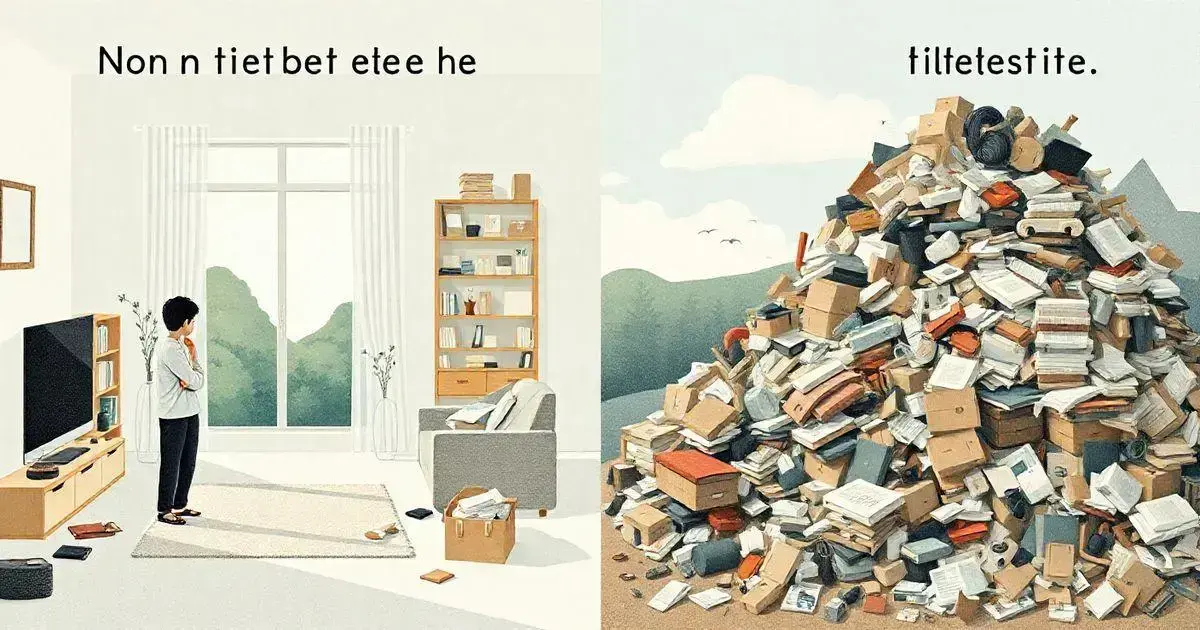
Embracing a Minimalist Lifestyle comes with its own set of challenges. One main hurdle is the emotional attachment we often have to our belongings. Letting go of items can be difficult, especially if they hold memories or sentimental value. Recognising these feelings is the first step in overcoming them.
Another challenge is the societal pressure to conform to consumerism. In a world that often values possessions, choosing to live with less can feel isolating. It’s important to remind yourself of the benefits of minimalism and to connect with like-minded individuals who share your values.
Additionally, maintaining a minimalist lifestyle can require effort and continuous reflection. As life changes, the needs may shift, requiring regular assessments of what is truly essential. This ongoing process can feel overwhelming at times, but it fosters growth and self-awareness.
Finally, practicality can sometimes clash with minimalism. It may be challenging to find multifunctional items that suit your needs. Researching and investing in quality products that serve multiple purposes can help alleviate this issue.
By being aware of these challenges and approaching them with intention, you can successfully navigate the path of a minimalist lifestyle.
Living a Minimalist Lifestyle: Real-Life Stories
Many individuals have transformed their lives by adopting a Minimalist Lifestyle. For example, Sarah, a busy professional, felt overwhelmed by her possessions. After decluttering her home, she found she had more time to spend with family and pursue hobbies. She now enjoys a peaceful atmosphere that enhances her creativity and productivity.
Another inspiring story is that of Tom and Lisa, a couple who embraced minimalism after realizing they were spending too much on unnecessary items. They decided to downsize their home and live in a smaller space, which significantly reduced their monthly expenses. This allowed them to travel more and experience life instead of accumulating things.
Additionally, there’s Mark, who turned to minimalism after experiencing stress and burnout. By removing distractions from his life, he improved his mental health and productivity. Mark now focuses on his personal growth and well-being, sharing his journey and tips with others online.
These real-life stories illustrate the profound impact that living a minimalist lifestyle can have on happiness, fulfillment, and overall quality of life. Embracing simplicity can lead to deeper connections and a clearer mindset.
Embracing Minimalism for a Better Life
Adopting a Minimalist Lifestyle can lead to significant improvements in overall well-being. By simplifying your surroundings and focusing on what truly matters, you create space for clarity and peace.
Real-life stories show that individuals who embrace minimalism experience reduced stress, enhance their creativity, and build deeper connections with others. The journey may have its challenges, but the rewards are invaluable.
Ultimately, living minimally is about making intentional choices that align with your values. Whether through decluttering your home or prioritising experiences over possessions, the benefits of minimalism can be profound and life-changing.
Frequently Asked Questions about Minimalist Lifestyle
What are the primary benefits of a Minimalist Lifestyle?
The primary benefits include reduced stress, increased focus, and enhanced financial savings by eliminating unnecessary expenditures.
How can I start living a Minimalist Lifestyle?
Begin by decluttering your space, prioritising essential items, and adopting a mindful approach to your purchases and daily activities.
Is minimalism only about decluttering physical space?
No, minimalism also involves reducing mental clutter and simplifying your digital life to create more space for meaningful experiences.
What challenges might I face when adopting minimalism?
You may encounter emotional attachments to belongings, societal pressures to consume, and the need for continuous self-reflection.
Can minimalism improve mental health?
Yes, living minimally can lead to a clearer mind, reduced anxiety, and better overall mental well-being.
How does minimalism relate to sustainability?
A Minimalist Lifestyle encourages eco-friendly choices by reducing consumption and promoting the use of durable, sustainable products.
Check out our article on Sustainable Lifestyle to explore practical tips for reducing your environmental footprint and living more responsibly.
